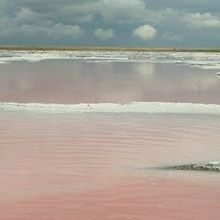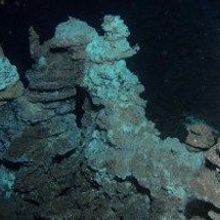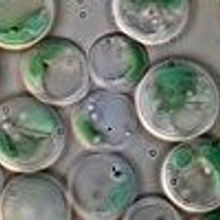Login
Subscribeextremophiles, microbiology

Extreme Biotech: Understanding Extremophile Biology to Impact Human Health
The Scientist | Aug 6, 2020 | 1 min read
Jaclyn Winter and Shiladitya DasSarma will discuss how they harness the unique biology of extremophiles for the discovery and development of new therapeutics.

Scientists Awaken Deep Sea Bacteria After 100 Million Years
Amanda Heidt | Jul 29, 2020 | 3 min read
The microbes had survived on trace amounts of oxygen and were able to feed and multiply once revived in the lab.

Life Rides the Wind in the Desert
Ashley Yeager | Dec 1, 2019 | 4 min read
As the afternoon breezes blow harder in the Atacama Desert—a place so desolate it’s used as a model of Mars—more microbes move into its driest regions.

Life Deep Underground Is Twice the Volume of the Oceans: Study
Carolyn Wilke | Dec 11, 2018 | 2 min read
Scientists estimate that subterranean organisms constitute a massive amount of carbon, 245 to 385 times greater than that contained in all humans.

New Insights into Tardigrades’ Ability to Withstand Drying Out
Kerry Grens | Dec 6, 2017 | 2 min read
Water bears can reanimate after years of desiccation—and gel-forming proteins unique to the animals may explain how.

Search for Life on the Red Planet
Diana Kwon | Dec 1, 2017 | 10+ min read
Growing evidence points to a once-habitable world—and recent findings suggest that life could exist on Mars today.

Infographic: The Hazards of Life on Mars
Diana Kwon | Nov 30, 2017 | 1 min read
High levels of radiation, among other health risks, challenge the future colonization of the Red Planet.

Researchers Discover Salt-Loving Methanogens
Abby Olena, PhD | May 26, 2017 | 3 min read
Two previously overlooked archaeal strains fill an evolutionary gap for microbes.

Prokaryotic Microbes with Eukaryote-like Genes Found
Jyoti Madhusoodanan | May 6, 2015 | 3 min read
Deep-sea microbes possess hallmarks of eukaryotic cells, hinting at a common ancestor for archaea and eukaryotes.

Stubbornly Persistent
Mary Beth Aberlin | Feb 1, 2015 | 3 min read
Microorganisms continually challenge our assumptions of what life can achieve.

The Energy of Life
Jeffrey Marlow and Jan Amend | Feb 1, 2015 | 10+ min read
Extremophiles should not be viewed through an anthropocentric lens; what’s extreme for us may be a perfectly comfortable environment for a microbe.

Astrogerm
Bob Grant | Nov 11, 2013 | 1 min read
Researchers find a new bacterial species lurking in clean rooms used to assemble spacecraft at NASA and the European Space Agency.

Life Below the Seabed
Ruth Williams | Mar 14, 2013 | 3 min read
Rock samples from deep within the Earth’s oceanic crust contain chemosynthetic microbial life.

Algae Get Help to Go to Extremes
Sabrina Richards | Mar 7, 2013 | 3 min read
A red alga appears to have adapted to extremely hot, acidic environments by collecting genes from bacteria and archaea.

Microbial Life Beneath the Ice
Jef Akst | Nov 26, 2012 | 1 min read
Researchers uncover a diverse microbial community living beneath 27 meters of ice in Antarctica’s Lake Vida.
